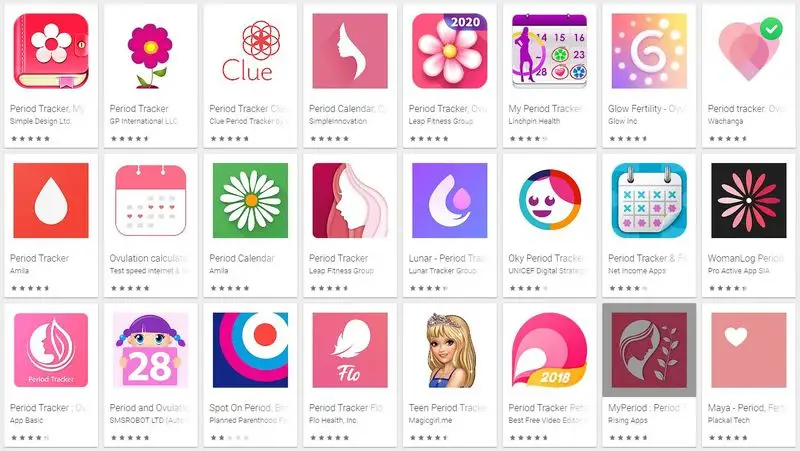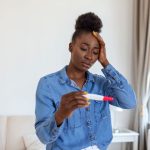What is a period app?
A period or fertility app is intended to help a woman learn what a healthy cycle looks like from menstruation, ovulation and post-ovulation phases and get the support she needs if she detects symptoms or imbalances.
Unfortunately, there is now an exploding market of thousands of period apps that claim to help a woman track her fertility, but have gained the reputation of being untrustworthy, ineffective and confusing for women who want natural birth control methods and want to avoid pregnancy.
What makes a period app valid?
First of all, most women believe that menstruation is the main event because it is the most visible, but the ovulatory cycle is the main event of a woman’s cycle. A woman has to determine if her period app includes data on ovulation and other hormonal activity in her cycle.
There are several questions a woman should ask herself as a guide to the validity and accuracy of a period app in helping her make decisions to avoid or achieve pregnancy.
Is the app backed by science?
If the app is only asking for information about the first day of a woman’s last menstrual period and monthly bleeding, it is most likely not backed by science. Furthermore, if the app is telling a woman when she will ovulate versus the woman inputting data about her ovulation events into the app, it is less likely to be backed by science and less reliable.
Does the app ask for input about ovulation?
If the only information a woman puts into her app is when her period starts and bases ovulation tracking on the days since her last period, this does not scientifically indicate a woman’s fertile window. Instead, the app gives a ballpark prediction of the fertile window through an algorithm that is not reliable.
This ballpark prediction does not include information about stress, illness or other circumstances that may delay ovulation which can make the fertility window vary cycle to cycle.
Algorithms alone are not a great resource. They are a tool that can be used in conjunction with real time observations that can become variable and override the algorithm.
Even if a woman has regular cycles, she can experience circumstances that will trump the fertile window algorithm because the follicular phase is the most variable part of a woman’s ovulatory cycle and depends on the events of the previous cycle.
What information about fertility does the app ask for?
Does the app ask a woman to observe and chart biomarkers like cervical fluid, basal body temperature or LH testing?
Cervical mucus is one of the most reliable biomarkers that can help a woman understand her entire fertile window.
Each month, a woman will experience a moist to slippery sensation when she wipes. She will observe a white, yellow or clear discharge.This is a sign that ovulation is near. The sensation, texture and appearance changes as ovulation approaches.
Initially, a woman will observe a white, thick or cloudy discharge which will alert her that estrogen is low, but beginning to rise. As her estrogen rises and ovulation approaches, the woman will observe cervical mucus that can be clear, slippery, lubricative, stretchy, abundant and resemble “egg whites.”
Peak day is the last day a woman sees, observes and experiences this highly estrogenic mucus. A woman’s fertile window is 3 days on either side of peak day.
The rise of estrogen triggers the LH (luteinizing hormone) to be released from the pituitary gland and causes the egg to be released from the ovary.
LH can be detected in your urine just like a simple home urine test. For LH testing, the woman will begin to test the first day she experiences a moist sensation or sees thick, cloudy white discharge. She will test until she is positive.
Her fertility window with LH testing is the day she tests positive +4 more days since she will ovulate 24-36 hours after a positive LH test.
Does your period app come with an instructor?
Even if a woman has the most reliable tracker for her ovulatory cycle, nothing replaces getting proper evidence-based education, guidance, support and knowledge from an instructor trained in reproductive and hormonal health.
Reproductive health educators can empower women to learn and understand their own biology and hormonal health. They can help women monitor cycle charting and hormone activity, give feedback on red flags for hormonal imbalances with real-time, measurable data and not merely a prediction.
In addition, the woman can track symptoms, medications, general health events and anything that would interfere with her normal cycle.
When a woman understands her own body, she can make better, informed decisions about her reproductive health and how to avoid or achieve pregnancy.
Trustworthy Birth Control Resources
TCMC offers programs like FEMM education empowering women to achieve hormonal health through charting their cycles while working side-by-side with a medical professional who will help them significantly improve their overall health.
To consult with a certified fertility education instructor, call 858-397-1970 or email [email protected].





